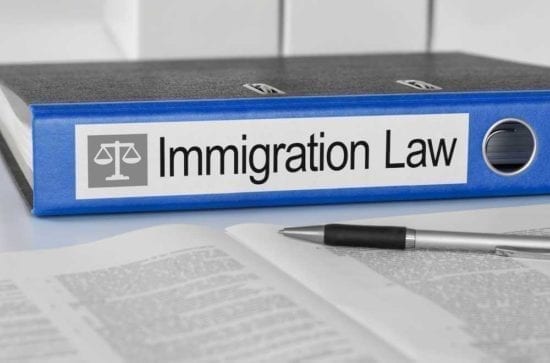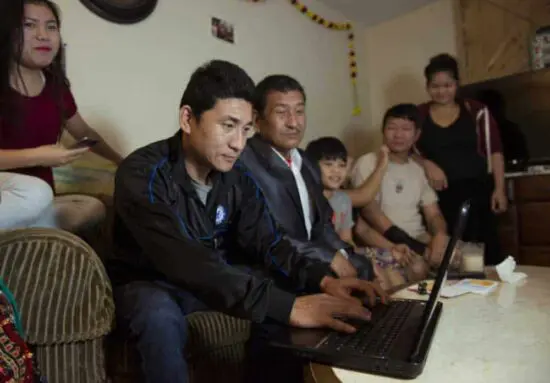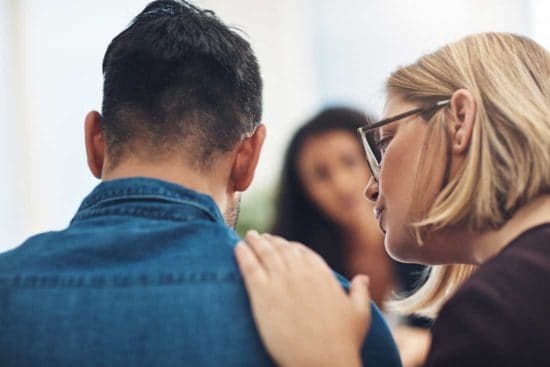How can I contact the police?
Call or text 911 for emergency help.
911 is available 24 hours a day, 7 days a week. You can call 911 even if you don’t have a phone plan or if you run out of minutes. If you do not have service or signal, you will not be able to call 911.
Call 311 for non-emergency help.
311 can give you the contact information for your local police station. Most police stations are open 24/7. You can call, email, or visit your police station for help.
Tip: Ask for an interpreter if you do not speak English fluently.
When should I call 911?
Call 911 when you need immediate help from the police, fire department, or ambulance. An emergency is a situation where a person’s life or property is in immediate danger. Emergency situations include:
- Fires
- Medical emergencies such as someone having difficulty breathing, chest pain, or loss of consciousness
- Mental health crises such as having thoughts of harming yourself or others
- Ask for a police officer trained to respond to mental health crises
- Serious crimes such as gunshots, robbery, domestic violence or sexual assault
- Car accidents with injuries
Tip: If you accidentally called 911, do not hang up. Stay on the line and explain that your call was a mistake.
When should I call my police station instead?
You should contact your local police station for help with non-emergency situations. These can include:
- A crime that has already happened
- A car accident with no serious injuries
- Suspicious activity
- Lost personal property, such as a wallet
- Get your criminal record
- Request a wellness check to see if someone is okay
- Questions about safety
Do not call the police for minor problems that are not urgent. Try to solve the problem yourself or get help from a family member, friend, or neighbor. For example, if your neighbor is having a loud party consider knocking on their door to ask them to bring the volume down.
| Be careful about calling the police. Involving the police in some situations can be dangerous to certain groups of people. Calling the police on someone who appears suspicious or is dealing with a mental health crisis can have a higher risk of violence. It may also put certain undocumented immigrants at risk of deportation. Consider other resources to help you. If calling 911 can save someone’s life, you should call. |
What happens when I contact the police?
If you call 911
An operator will pick up the phone and ask you questions to figure out how best to help you. They will ask for:
- Your name
- Your phone number
- Details about the emergency
- the location
- what is happening
- what you need
You do not have to give your name, phone number, or address if you want to remain anonymous. You do not have to answer any questions that you don’t feel comfortable answering.
An operator may send a police car, firetruck, or ambulance if necessary. The operator will tell you what to do until help arrives. They can give you instructions on things such as providing first aid or CPR.
Tip: Calling 911 can be very stressful. Operators are trained to help you. Stay calm and do your best to answer the operator’s questions. Do not hang up until the operator tells you to do so.
If you contact the police station
A police officer will try to assist you and connect you to the best resource. If you report a crime, a police officer will ask you more questions to investigate it. If you are a victim of a crime, a police officer will ask you to file a police report or make a statement.
Tip: Some police stations have liaison officers who work with immigrant and refugee communities. You can ask your local police department if they have an immigrant, refugee, or cultural liaison who can help you.
What are my rights when talking to the police?
Everyone has the right to get help from the police. Your immigration status should not affect this. You do not have to disclose information about your nationality or immigration status unless you are entering or leaving the country.
Not all police officers will respect your rights or protect your safety. Police officers may ask you hard questions to get information that can be used against you. Police officers have also harmed people in situations where they have felt afraid.
You may or may not have issues when you are calling the police for help. If you fear they may suspect you of a crime, make sure you know your rights. It is important to stay calm and follow the police officer’s instructions. You have the right to say you want to remain silent and ask for a lawyer. It is recommended that you talk to a lawyer before answering any questions or signing any documents. If you choose to answer questions, it is important to always tell the truth.
Find information and tips on:
- What to do you when you’re stopped by police
- What to do when law enforcement asks you questions
- Know your rights as an immigrant
If you believe a police officer has violated your rights, you can file a complaint with the internal affairs division or civilian complaint board.
What are other safety resources?
If you do not feel comfortable contacting the police, you can find alternatives to calling the police in your community. You can also call a crisis hotline for help and advice during a crisis. Hotline staff are trained to provide information and resources. They are available at all hours of the day and often offer help in different languages.
Contact |
Number |
|---|---|
988 (call or text) |
|
741741 (text) |
|
(800) 985-5990 (call or text) |
|
(800) 422-4453 (call or text) |
|
(800) 799-7233 88788 (text START) |
|
(888) 373-7888 (call) 233733 (text) |
|
(800) 786-2929 (call or text) |
|
(800) 656-4673 (call) |
|
SAMHSA National Helpline to find local services |
(800) 662-4357 |
(800) 852-8336 (call) 839863 (text) |
|
888-843-4564 (call) |
|
Trevor Project for LGBTQ young people |
(866) 488-7386 (call) 678678 (text) |
988 (call and press 1) 838255 (text) |
Other non-emergency help can be found by dialing:
- 211 or visit 211.org for local community resources, including food, housing, health, and financial help. 211 is available 24 hours a day, 7 days a week in many languages.
- 311 for information about your city government services including trash, utilities, and public safety.
- 511 or visit for traffic and weather information in your state.
Tip: If you are deaf, hard of hearing, or have a speech disability, call 711 for help communicating over the phone. If you are in an emergency situation, you should call 911 directly and not call 711.
Types of law enforcement?
Law enforcement is made up of government agencies responsible for maintaining public safety and order. Law enforcement falls into these main categories:
- Federal agencies enforce laws at the national level. The Federal Bureau of Investigation, Department of Justice, Department of Homeland Security, and Secret Service are examples of federal law enforcement agencies.
- State agencies are authorized to enforce laws within each state.
- County agencies or sheriff’s departments operate in each county.
- Local agencies have officers in cities, towns, and villages.
Police officers work at the federal, state, and local levels to:
- Enforce state and federal laws
- Prevent and investigate crimes
- Arrest suspects
- Provide emergency assistance
The information on this page comes from 911.gov, the ACLU, and other trusted sources. We aim to offer easy to understand information that is updated regularly. This information is not legal advice.



